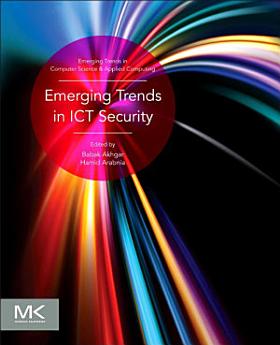Emerging Trends in ICT Security
આ ઇ-પુસ્તક વિશે
રેટિંગ અને રિવ્યૂ
લેખક વિશે
Babak Akhgar is Professor of Informatics and Director of CENTRIC (Center of Excellence in Terrorism, Resilience, Intelligence and Organized Crime Research) at Sheffield Hallam University (UK) and Fellow of the British Computer Society. He has more than 100 refereed publications in international journals and conferences on information systems with specific focus on knowledge management (KM). He is member of editorial boards of several international journals and has acted as Chair and Program Committee Member for numerous international conferences. He has extensive and hands-on experience in the development, management and execution of KM projects and large international security initiatives (e.g., the application of social media in crisis management, intelligence-based combating of terrorism and organized crime, gun crime, cyber-crime and cyber terrorism and cross cultural ideology polarization). In addition to this he is the technical lead of two EU Security projects: “Courage on Cyber-Crime and Cyber-Terrorism and “Athena onthe Application of Social Media and Mobile Devices in Crisis Management. He has co-edited several books on Intelligence Management.. His recent books are titled “Strategic Intelligence Management (National Security Imperatives and Information and Communications Technologies), “Knowledge Driven Frameworks for Combating Terrorism and Organised Crime and “Emerging Trends in ICT Security. Prof Akhgar is member of the academic advisory board of SAS UK.
Hamid R. Arabnia is currently a Full Professor of Computer Science at University of Georgia where he has been since October 1987. His research interests include Parallel and distributed processing techniques and algorithms, interconnection networks, and applications in Computational Science and Computational Intelligence (in particular, in image processing, medical imaging, bioinformatics, and other computational intensive problems). Dr. Arabnia is Editor-in-Chief of The Journal of is Associate Editor of IEEE Transactions on Information Technology in Biomedicine. He has over 300 publications (journals, proceedings, editorship) in his area of research in addition he has edited two titles Emerging Trends in ICT Security (Elsevier 2013), and Advances in Computational Biology (Springer 2012).







